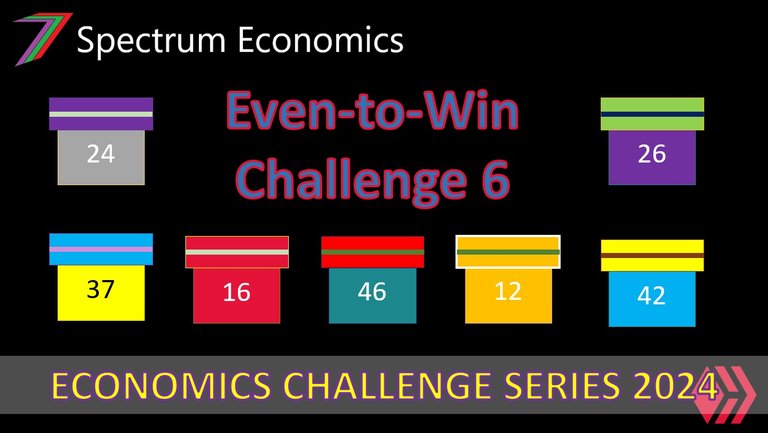Hi Everyone,
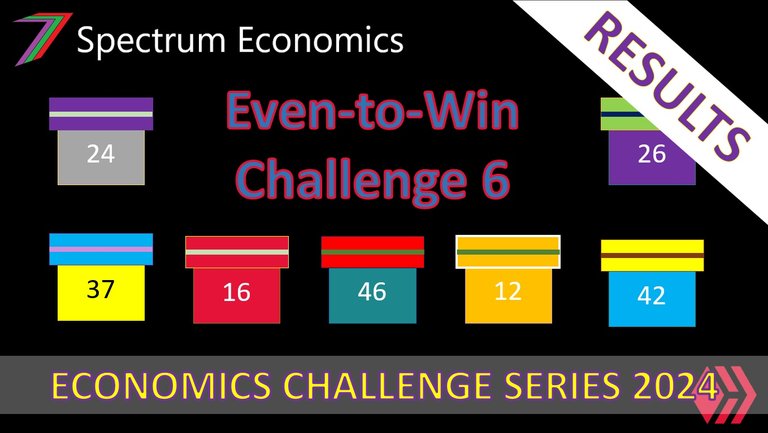
Welcome to the Economics Challenge Series for 2024. For July and August, I am running an economics challenge series. The series consists of seven challenges. All the challenges will commence in July and early August. I will publish and announce the results in August.
Six of the seven challenges from last year's Challenge Series are returning. The Tax Game from 2022 is replacing the business version of the Buying and Selling Game. Below is the list of challenges.
- Challenge 1: Ice Cream Game
- Challenge 2: Game Theory Game
- Challenge 3: Pick-a-Door
- Challenge 4: Complement vs. Substitute
- Challenge 5: The Buying and Selling Game
- Challenge 6: Even-to-Win
- Challenge 7: Tax Game
Each challenge could reward winners with as much as 60 Hive Power. The value of the prize will depend on the level of participation. For each new participant, the prize will increase by 5 Hive Power. This will continue until 60 Hive Power is reached (12 participants). The first 12 participants will also receive a 50% upvote from this account.
In addition to the prize money, the top few participants will be given points. These points will be used to determine the overall challenge series winner. This winner may receive as much as 80 Hive Power. The value of the prize will equal the sum of the number of participants across all challenges. This will continue until 80 Hive Power is reached.
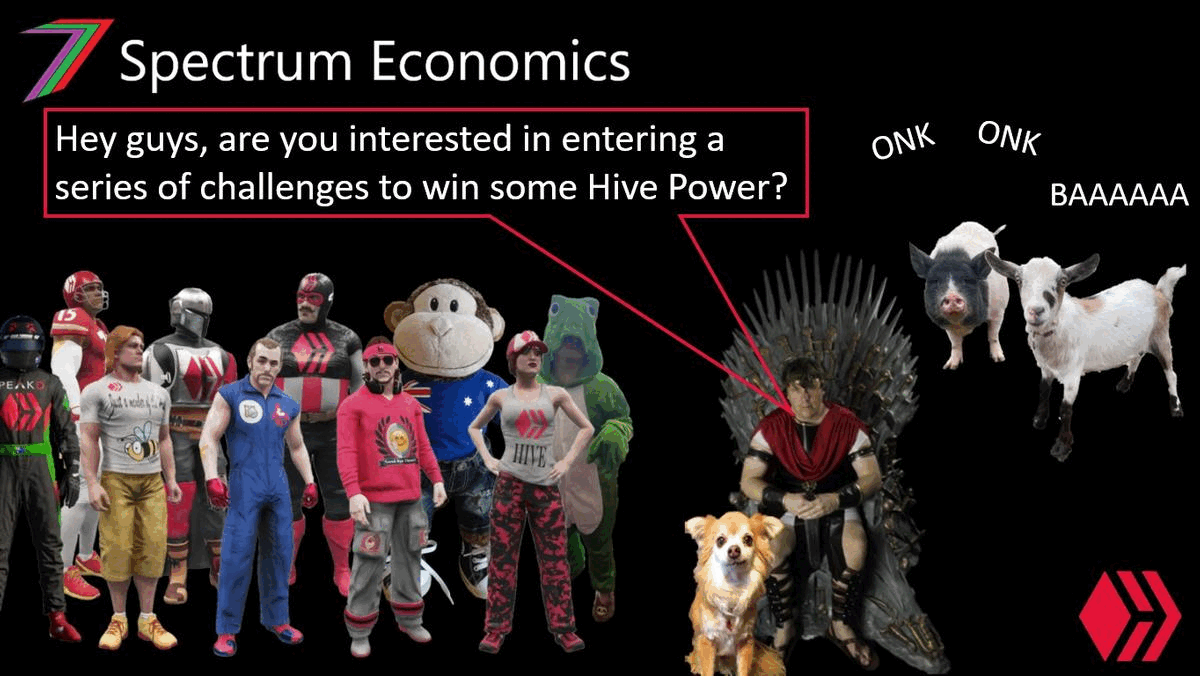
For more information on the challenge series, I recommend that you read my post from last year. This year’s Challenge Series is run the same way as last year’s.
What is the Even-to-Win Game?
The ‘Even to Win’ Game requires participants to select a certain number of boxes (e.g., 7 out of 13 boxes). Each box has been assigned a value. The participant obtains that value if an even number of participants have selected that box. If only one participant selects the box, it does not award that value. If two participants select it, it offers the value stated in the question. If three participants select the box, it does not award that value.
Some boxes have limits to the number of participants that can select them. For example, a box might have a limit of three participants. Once the third participant has selected the box, new participants can no longer select that box. Any new selections of the boxes once they have reached their limit will not be considered in determining the participant’s total value. However, their remaining selections will still be considered.
The objective of the game is to obtain the highest combined value from the boxes selected. If two participants obtain the same value, the participant who entered first wins. If nobody obtains a positive value (e.g., all boxes are selected by an odd number of participants), the prize will be rolled over to the next challenge.
Responses to the challenge were made in the comments section of the challenge post. The total prize for this challenge is equivalent to 5 times the number of participants (e.g., if the challenge has 8 participants, the prize will be 40 Hive Power (5 × 8)). The maximum prize for this challenge is 60 Hive Power. The winner receives 2/3 of the prize and 40 points. Second place receives 1/3 of the prize and 20 points. Third place receives 5 points. In addition to the winning prize, the first 12 entries were given upvotes.
The format of the required entry is explained in detail in the challenge itself.
For a more detailed explanation, you can access the challenge post using the following link.
Results of the ‘Even-to-Win’ Challenge
Table 1 contains the boxes selected by each participant. The black boxes represent the selected boxes, the red boxes have been selected after the limit, and the grey boxes were not selected.
Table 1: Boxes Selected by Participants
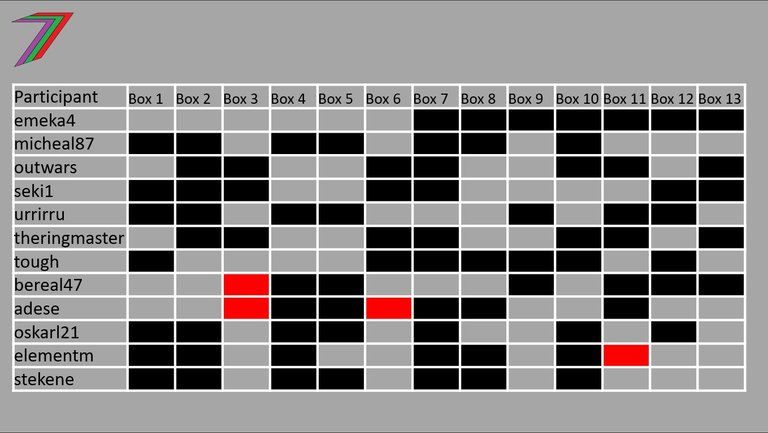
Table 2 contains the value of each box based on the number of selections made by participants (if even, the value of the box is awarded; if not, the box is worth zero) and the total number of selections for each box.
Table 2: Value of Boxes
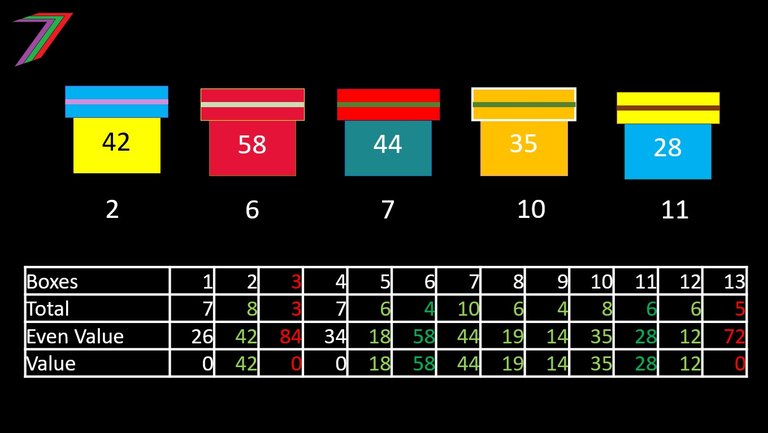
Note: The dark green font represents boxes that reached their limit with an even number of participants. Red font represents boxes that reached their limit with an odd number of participants. Light green font represents boxes that boxes have an even number of participants. The white font represents boxes that have an uneven number of participants.
Table 3 contains the value each participant obtained from each box as well as the combined value of the boxes they selected.
Table 3: Combined Value of Boxes Selected by Each Participant
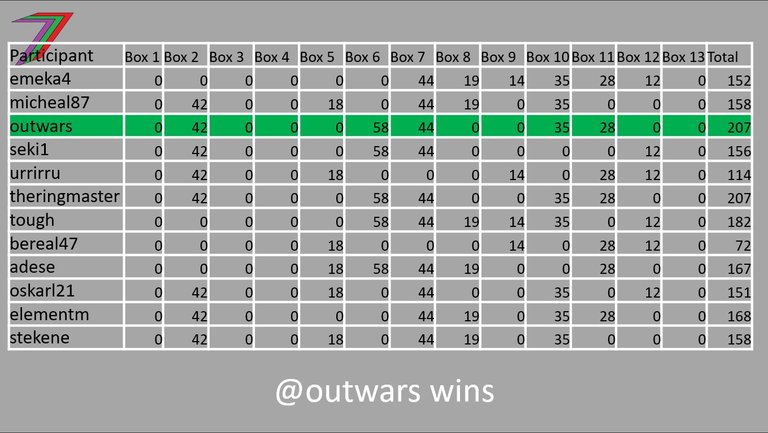
As the number of participants reached 12, the prize for this challenge is 60 Hive Power.
Congratulations to @outwars for winning the ‘Even-to-Win’ Game and a prize of 40 Hive Power and 40 points. Second place, @theringmaster wins 20 Hive Power and 20 points. Third place, @tough wins 5 points.
@outwars selected boxes 2, 3, 6, 7, 10, 11, and 13. Five of these boxes were selected by an even number of participants. The total value for these boxes was 207. @theringmaster also obtained a total value of 207, but entered after @outwars, therefore, lost based on the tiebreaker rules. There were four other boxes with positive values. They were 5, 8, 9, and 12.
Tips for Future ‘Even-to-Win’ Games
Winning this contest largely relies on luck, but participants can do a number of things to improve their chances of winning. Box selection and timing of entry can play an important role in increasing these chances. Selecting earlier offers an advantage to players as they can win tiebreakers and have a wider choice of boxes; the boxes with a limit on the number of selections are available.
Entering later enables participants to analyse earlier participants’ selections. However, the entrance of another participant could completely change the game as boxes switch between even and odd numbers of selections; thus, any previous analysis is no longer relevant.
The participant to enter last (not known until the game has closed) most likely has an advantage over other participants. This is most likely the case if few participants have entered before him or her. However, the last participant to enter may not have a possible path to victory (i.e., lost before even entering).
Selecting a box with a limit on the number of participants may or may not be a good decision. For this game, the limits for some boxes were set as even and some as odd numbers. For boxes with even number limits, once the limit has been reached, the box will permanently have the stated value. Boxes with an even limit are normally a good selection. The only risk is that it might not reach its limit if the limit is set high and the number of participants is low.
For boxes with odd number limits, once the limit has been reached, the box will permanently have a zero value. Therefore, boxes with odd participation limits should be avoided under most circumstances. If the limit is very high and the value of the box is very high, a box with an odd limit could still be a good selection as the limit might not be reached. There are no certainties in this game.
Overall Series Score
After six challenges, the overall scores for the Challenge Series are as follows:
| Position | Participants | Points |
|---|---|---|
| 1 | Emeka4 | 85 |
| 2 | Oskarl21 | 45 |
| 3 | Outwars | 40 |
| 4 | Urrirru | 35 |
| 5 | Bereal47 | 35 |
| 6 | Theringmaster | 35 |
| 7 | Seki1 | 30 |
| 8 | Micheal87 | 10 |
| 9 | Adese | 5 |
| 10 | Tough | 5 |
This table will be updated in every results post.
My New Book, Sapien Loop

I have published an ebook on Amazon; it is titled ‘Sapien Loop: End of an Era’. The book is fiction. I do not normally write fiction. However, I felt it was appropriate considering what is happening in the world today. Freedom is the most important thing we have, but we are gradually losing it. I have covered this in many of my posts.
In the story, most citizens do not understand the concept of freedom because they have never really experienced it. In essence, the story is about an alien world that might represent our not-so-distant future. There are many other elements to the story that are an abstract and exaggerated version of our reality. I believe this book to be an important read, and I believe it has the potential to change the way you think.
Brief Summary of Sapien Lopp
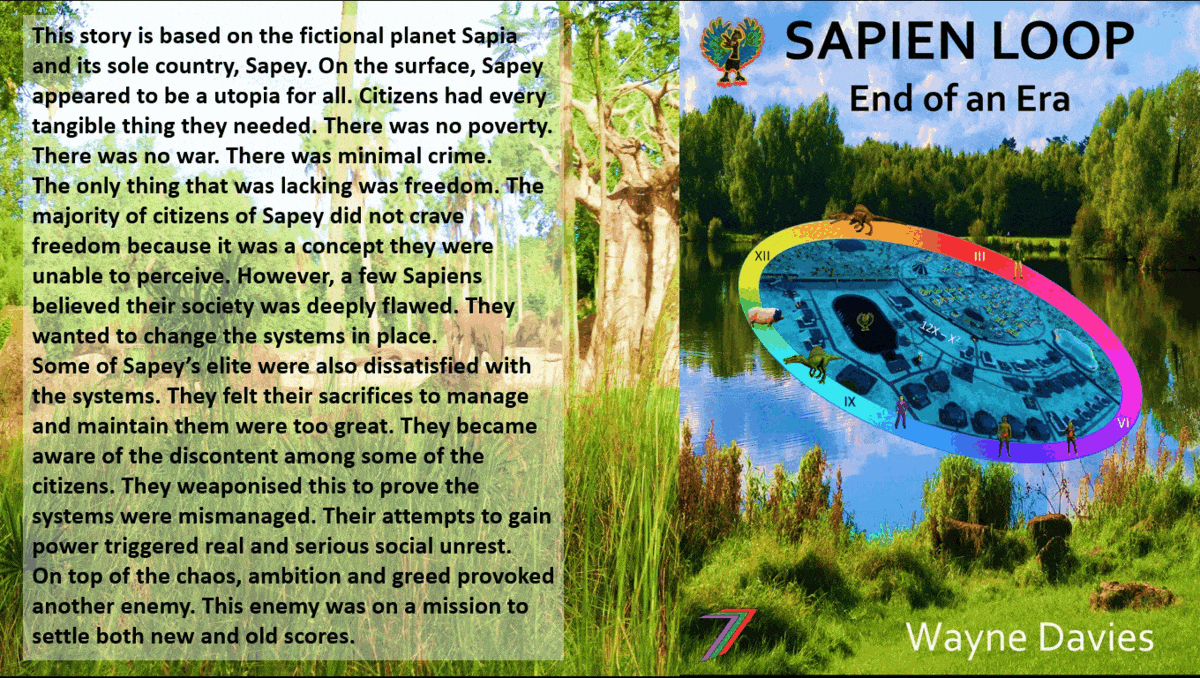
This story is based on the fictional planet Sapia and its sole country, Sapey. Sapey is portrayed as a form of utopia for all its citizens. No poverty. No war. Almost no crime. Opportunities for all.
This was enough for most citizens, but not all. In one of the small regions, some of the citizens had become discontent. They felt something important was missing in their lives. Their discontent did not go unnoticed. Some of the Sapey elite wanted to weaponise this discontent to gain more power. This created more chaos than they anticipated. This led to further widespread social unrest.
On top of the chaos, ambition and greed provoked another enemy. This enemy was on a mission to settle both new and old scores.
If you want to buy a copy of the book, below are links to the relevant Amazon websites for each country it is available in. The book is priced at approximately US$5.08.
- Amazon USA
- Amazon UK
- Amazon Germany
- Amazon France
- Amazon Spain
- Amazon Italy
- Amazon Netherlands
- Amazon Japan
- Amazon Brazil
- Amazon Canada
- Amazon Mexico
- Amazon Australia
- Amazon India
I am also running monthly contests where participants are required to answer questions based on the book. The prize is 30 Hive Power plus upvotes for the first twelve entries. You can recover the cost of the book with just one win.
Hive: Future of Social Media

Spectrumecons on the Hive Blockchain

